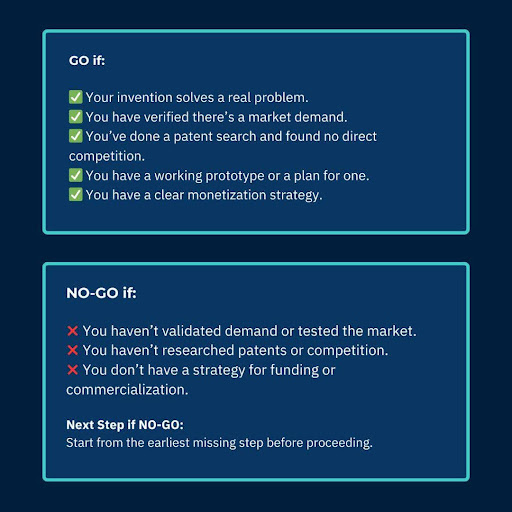How Do I Know If My Idea Is an Invention?
Mar 12, 2025
By Eric McGill, The Inventor’s Mentor
Having successfully monetize two of my own inventions and with over 25 years of experience as a technology commercialization expert, I have advised on over 950 inventions—working with NASA, the US Army, universities, and small businesses—determine whether their ideas have real invention potential. Many people believe that having a great idea automatically means they have an invention, but that’s not always the case. Understanding the difference can save you time, money, and frustration.
What Is an Invention?
At its core, an invention is more than just an idea—it is a novel and useful creation that solves a problem in a new way. According to patent law, an invention must be novel, non-obvious, and useful to qualify for protection. But even beyond patents, an invention should have real-world value, whether through technology, a new process, or a unique application of existing knowledge.
Key Questions to Ask Yourself
Here’s a structured approach to help you determine if your idea qualifies as an invention:
1. Does Your Idea Solve a Real Problem?
Every invention is a solution to a problem. Ask yourself:
- What specific problem does my idea solve?
- Is this problem significant enough that others would pay for a solution?
- Has this problem been solved before, and if so, how is my solution different?
If your idea improves an existing product or creates an entirely new way to solve a problem, you may have an invention on your hands.
2. Is It Unique?
Just because an idea is useful doesn’t mean it qualifies as an invention. It must be new. You can test its uniqueness by:
- Conducting a basic patent search online (Google Patents, USPTO, etc.).
- Researching existing solutions in the market.
- Asking: “Has this been done before?” If so, what makes mine different?
If you discover that your idea is already patented or widely used, you may need to refine or pivot your concept to make it novel.
3. Is It More Than Just an Idea?
An invention must be something that can be demonstrated, built, or implemented. Ask yourself:
- Can I describe my idea in detail so someone else could build it?
- Have I created a prototype or proof of concept?
- Can I show how my idea works beyond theory?
If you can document or prototype your concept, you are moving beyond an idea and into invention territory.
4. Can It Be Protected?
Not all inventions require patents, but understanding whether your idea has intellectual property (IP) potential is crucial. Ask yourself:
- Does my idea meet the legal definition of an invention?
- Could I apply for a patent, copyright, or trade secret protection?
- Would protecting my idea provide a competitive advantage?
If your invention is easy to copy, lacks novelty, or is too abstract, it may not be patentable, but that doesn’t mean it lacks value.

Take the Quiz: Is Your Idea an Invention?
Beyond Patents: Does It Have Market Potential?
Many inventors focus solely on patentability when they should also be asking: Does my invention have commercial value? A great invention is one that people need and are willing to pay for. Consider:
- Who is my target customer?
- How big is the market for my invention?
- Can I license or manufacture it profitably?
Some of the best inventions are those that may not be patentable but still have high commercial value. Think software, business processes, or unique service models.
Still unsure if your idea qualifies as an invention? Take the Is My Idea an Invention? quiz and get instant feedback! Click here to take the quiz now.
Final Thoughts: The Inventor’s Mindset
One of the biggest lessons I teach as The Inventors Mentor is that invention should be a strategic and structured process, not just a moment of inspiration. Many ideas start as simple observations but evolve into great inventions through testing, iteration, and validation.
If you’re unsure whether your idea is an invention, don’t get discouraged. Do your research, document your idea, and seek feedback. A great idea, properly developed, can change the world—or at least make a big impact in its market.
Think your idea is potentially an invention. Want help figuring out your next step? I specialize in guiding inventors through this process, helping them confidently take next steps.
Download the FREE Informed Inventor’s Next Steps Guide.
Stay connected with news and updates!
Join our mailing list to receive the latest news and updates from our team.
Don't worry, your information will not be shared.
We hate SPAM. We will never sell your information, for any reason.

